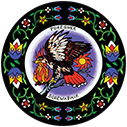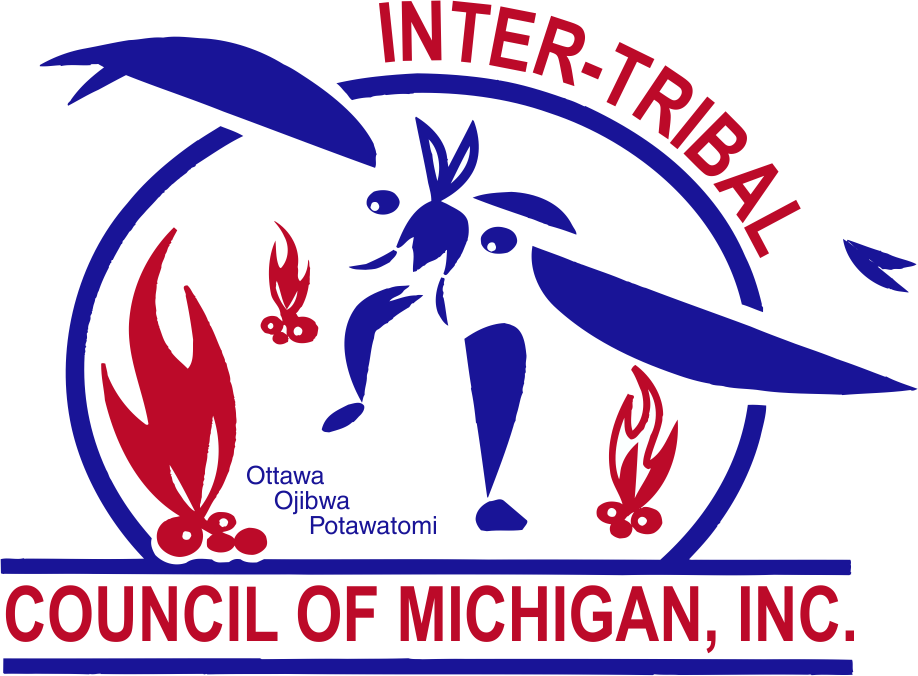Category: Tribe
Tribe
Bay Mills Indian Community
Website: http://baymills.org
Phone: 906-248-3241
Bay Mills Wellness Center
12124 W. Lakeshore Drive
Brimley, Michigan 49715
Health Director: Audrey Breakie
Phone: 906-248-3204
Fax: 906-248-3508
Email: abreakie@baymills.org
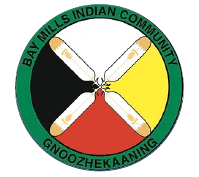
The Bay Mills Indian Community is located twenty five miles west of Sault Ste. Marie in Brimley, Michigan, within the boundaries of Chippewa County. Bay Mills people are Ojibwa or Chippewa who have lived for hundreds of years around the Whitefish Bay, the falls of the St. Mary River and the bluffs overlooking Tahquamenon Bay, all on Lake Superior, most of which still encompass their present day homeland. The Bay Mills Indian Community was officially established by an Act of Congress on June 19, 1860. The tribe’s service area services members on the reservation and living adjacent within Chippewa County. In 1966 Bay Mills became one of the four founding federal tribes that established the Inter-Tribal Council of Michigan, Inc.
Tribe
Grand Traverse Band of Ottawa & Chippewa Indians
Website: http://gtbindians.org
Phone: 866-534-7750
Grand Traverse Band of Ottawa Chippewa Indians Medicine Lodge
2605 N.W. Bayshore Drive
Peshawbestown, Michigan 49684
Health Director: Soumit Pendharkar
Phone: 231-534-7477
Fax: 231-534-7806
Email: soumit.pendharkar@gtbindians.com
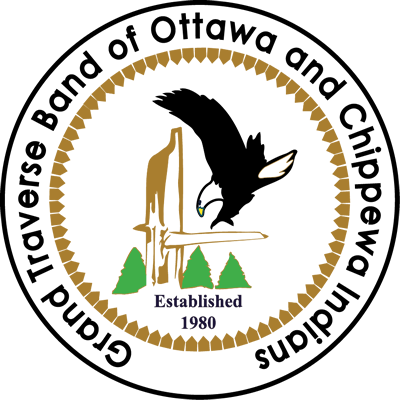
The Grand Traverse Band of Ottawa and Chippewa Indians are located in the northwestern section of Michigan’s Lower Peninsula, 23 miles north of Traverse City in Leelanau County. In 1998 the tribal land base consisted of 450 acres of trust lands as well as recently purchased additional tribal lands. They received their federal recognition in 1980 and were the first tribal group to do so under the conditions of the Tribal Federal Acknowledgement Process adopted by the Department of Interior, Bureau of Indian Affairs in 1998.They adopted their tribal constitution, bylaws and corporate charter on February 24, 1998. The constitution was not generic but specific in nature, unlike most of the tribal constitutions developed for the most part by the federal government for adoption pursuant to the Indian Reorganization Act of 1934 and adopted by most tribes during the mid 1930’s. Their service area includes the reservation and a six county area adjacent to Leelanau County. The Grand Traverse Band was the 7th tribe to join the Inter-Tribal Council of Michigan.
Tribe
Hannahville Potawatomi Indian Community
Website: http://hannahville.net
Phone: 906-466-2932
Department of Health and Human Services
N15019 Hannahville B-1 Road
Wilson, Michigan 49896
Health Director: G. Susie Meshigaud
Phone: 906-723-2500
Fax: 906-466-9154
Email: susie.meshigaud@hichealth.org
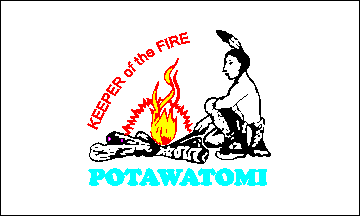
The Hannahville Potawatomi Indian Community is located in the south central section of Michigan’s Upper Peninsula in Menominee County, twenty miles west of Escanaba, Michigan and ninety five miles northeast of Green Bay Wisconsin. The reservation was established by an act of Congress in 1913, although descendants of the northern Illinois and southern Wisconsin Potawatomi have been residing in the Wilson/ Bark River/Harris area since 1853 specifically along the Cedar River. They were accorded federal recognition in 1937 under the terms of the 1934 Indian reorganization Act which set up tribal governments as we know them today. Their service area includes the reservation and members living in Delta and Menominee Counties. They joined Bay Mills, Keweenaw Bay and the Saginaw-Chippewa with the establishment of the Inter-Tribal Council in Michigan Inc. in 1966.
Tribe
Keweenaw Bay Indian Community
Website: http://ojibwa.com
Phone: 906-353-8700
Keweenaw Bay Indian Community Donald A. LaPointe Health & Education Center
102 Superior Avenue
Baraga, Michigan 49908
Health Administrator: Deanna Foucault
Phone: 906-353-8700
Fax: 906-353-8799
Email: deanna.foucault@kbic-nsn.gov
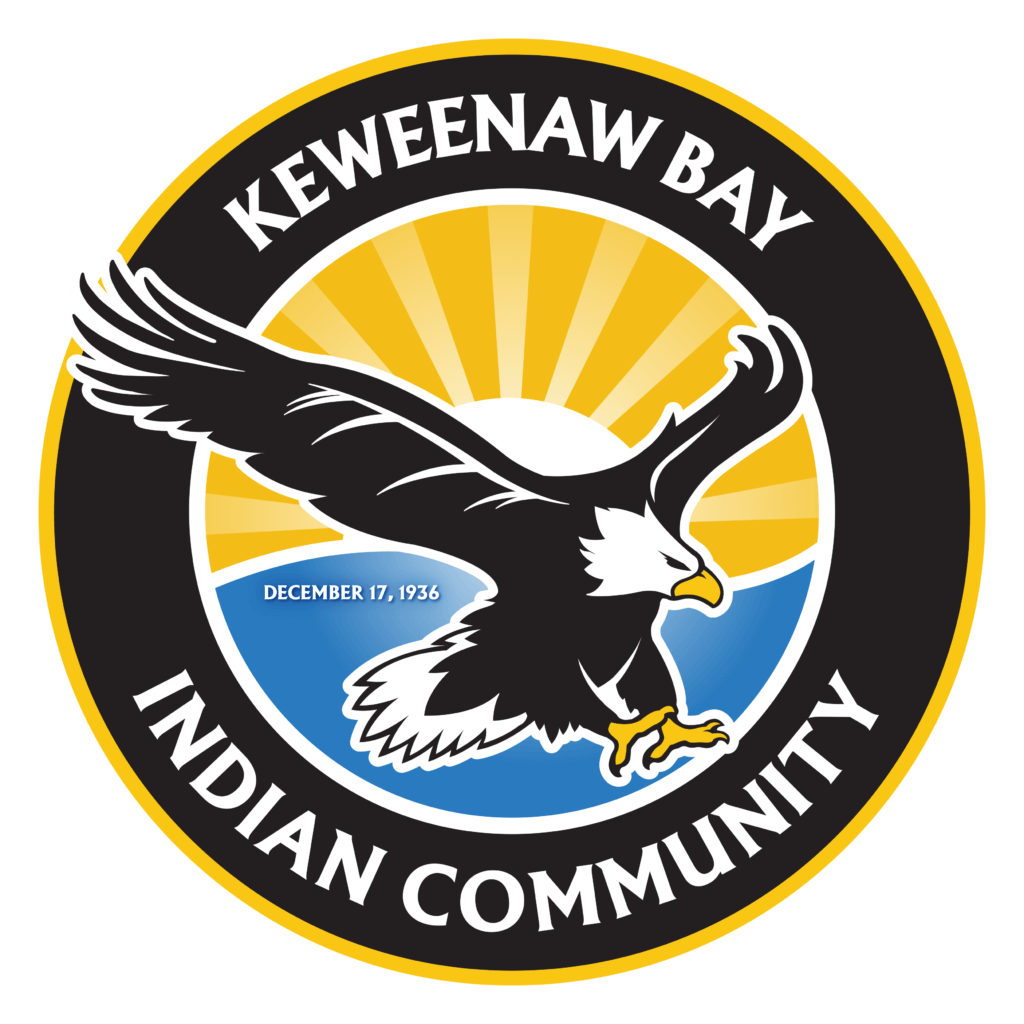
The Keweenaw Bay Indian Community of the Lake Superior Band of Chippewa Indians is located approximately 65 miles north of Marquette, Michigan in the L’Anse/Baraga Michigan area and has dual land bases on both sides of the Keweenaw Bay Peninsula in Baraga County. Their service area includes within the boundaries of the reservation in Baraga County, as well as members Ontonagon, Gogebic, Marquette, Houghton and Keweenaw Counties. The L’Anse Reservation is both the oldest and the largest reservation in Michigan. It was established under the treaty of 1854. Keweenaw Bay is one of the four original member tribes in Michigan that founded the Inter-Tribal Council of Michigan, Inc. in 1966 and remain a most vital member ever since. Their constitution, by-laws and corporate charter were adopted on November 7, 1836 pursuant to the terms of the 1934 Indian Reorganization Act that established tribal governments as we know them today.
Tribe
Lac Vieux Desert Band of Chippewa Indian Community
Website: http://lvdtribal.com
Phone: 906-358-4577
Lac Vieux Desert Band
P.O. Box 249 (E-23560 Choate Road)
Watersmeet, Michigan 49969
Health Director: Sadie Valliere
Phone: 906-358-4577 x122
Fax: 906-358-4118
Email: sadie.valliere@lvdtribal.com
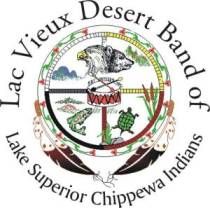
The Lac Vieux Desert Band of Chippewa Indian Community is located at Watersmeet, Michigan in the western most region of the Upper Peninsula, approximately 45 miles northwest of Ironwood, Michigan in Gogebic County. The Lac Vieux Desert Band of Chippewa Indians is one of twelve bands known as the Lake Superior Bands of Chippewa Indians and one of the three located in Michigan along with L’Anse Band and Ontonogan Band which were later united as one under the Keweenaw Bay Chippewa Indian Community. The remaining nine bands are located in northern Wisconsin and Minnesota and they were all party to the same treaties. The current tribal government was established as stand alone in and re-cognized as a tribe for purposes of federal protection and services in 1988. Their service area includes the reservation and tribal members living adjacent in Gogebic County. The Lac Vieux Desert Band was the sixth tribe to join the Inter-Tribal Council of Michigan.
Tribe
Little River Band of Ottawa Indians
Website: https://lrboi-nsn.gov
Phone: 231-723-8288
Little River Band Health Center
2608 Government Center Drive
Manistee, MI 49660
Health Director: Dr. Daryl Wever
Phone: 231-398-6852
Fax: 231-398-9684
Email: darylwever@lrboi-nsn.gov
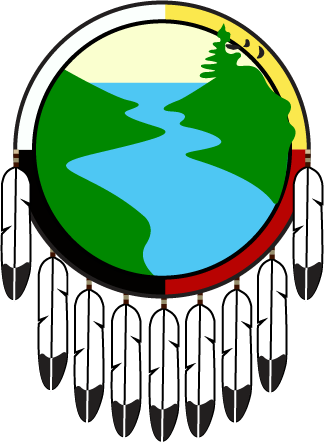
The Little River Band of Ottawa Indians, a Native Sovereign Nation is based in Manistee, LRBOI is the political successor to nine of the nineteen historic bands of the Grand River Ottawa people. The permanent villages of the Grand River Bands from which the Little River Ottawa descend were originally located on the Thornapple River, Grand River, White River, Pere Marquette River and the Big and Little Manistee Rivers. Those southern bands shared hunting and trapping territory along the Pere Marquette and Manistee River systems and had close kinship ties to the northern Grand River Bands at Pere Marquette The Little River Band Ottawa moved to the western shore of Michigan, ranging from the Manistee River in the north to the Grand River in the south. In these village sites, approximately nineteen in all, the Tribe lived for many years.
The tribes’ 1836 Reservation was located on the Manistee River, in large part, to provide the Bands with a permanent home which gave them access to important hunting and trapping territories on the Manistee River system. Following the 1855 treaty, the nine Bands from whom the Little River Ottawa descend, established a major settlement known as “Indian Town” on the Pere Marquette, near present day Custer in Mason County, Eden Township.
Tribe
Little Traverse Bay Bands of Odawa Indians
Website: http://ltbbodawa-nsn.gov
Phone: 231-242-1400
Little Traverse Bay Band of Odawa Indians
7500 Odawa Circle
Harbor Springs, Michigan 49740
Health Director: Jody Werner
Phone: 231-242-1700
Fax: 231-242-1717
Email: jwerner@ltbbodawa-nsn.gov
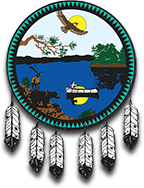
The Little Traverse Bay Bands of Odawa Indians are located in the northern portion of the Lower Peninsula of Michigan, with headquarters centered in Petoskey. The Little Traverse Bay Bands of Odawa were not accorded the opportunity to participate in the Indian Reorganization Act Activities of the mid 1930s and in federal practice, lost their status as a federally recognized United States Tribe. Their long struggle to rectify this deliberate omission was finally corrected in September, 1994 when they received “affirmation of their federal tribal status”, pursuant to federal congressional legislation, P.L. 103-324. The majority of tribal population lives in the towns of Petoskey, Harbor Springs and Charlevoix. These three communities are all well to do, with many years-around recreational activities. Most employment centers on tourism business. Part of Petoskey (Bay Shore Association) is listed in the Historic Federal Register, for their turn of the century summer homes, for the elite of Chicago, Detroit and Grand Rapids.
Tribe
Match-E-Be-Nash-She-Wish Band of Pottawatomi Indians
Website: https://gunlaketribe-nsn.gov
Phone: 269-397-1780
Match-E-Be-Nash-She-Wish Pottawatomi
2880 Mission Drive
Shelbyville, Michigan 49344
Health Director: Kelly Wesaw
Phone: 269-367-1760
Fax: 269-367-1761
Email: kelly.wesaw@hhs.glt-nsn.gov
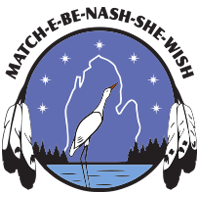
The Match-E-Be-Nash-She-Wish Band of Pottawatomi Indians, commonly referred to as the Gun Lake Tribe, received their federal recognition of tribal status from the Bureau of Indian Affairs, pursuant to such determination prescribed under the Federal Acknowledgement Process of 1978, with the Final Determination to be published in the Federal Register on October 23, 1998. They are headquartering in Shelbyville, Michigan in Allegan County, about miles south of Grand Rapids in the southwestern part of the Lower Peninsula.
Tribe
Nottawaseppi Huron Band of the Potawatomi
Website: https://nhbp-nsn.gov/
Phone: 269-729-5151
Tribal Health Department
2221 1-1/2 Mile Rd.
Fulton, MI 49052
Health Director: Rosalind Johnston
Phone: 269-729-4422
Fax: 269-729-4460
Email: healthdir@nhbp.org

The Nottawaseppi Huron Band of the Potawatomi received their federal recognition or reaffirmation of status in 1995 by Congressional legislation. Their homeland headquarters are in Fulton Michigan which is near Athens, Michigan another small village in the southwestern region of Michigan Lower Peninsula, 14 miles north of Battle Creek. They also maintain satellite offices in Grand Rapids 110 miles north of Fulton/Athens which is approximately 55 miles from the Indiana Border. Their service area includes reservation boundaries, and Kalamazoo, Calhoun, Ottawa, Kent and Allegan Counties. Like the other nine historic to Michigan Ottawa, Chippewa and Potawatomi bands the Huron Potawatomi were not accorded the opportunity to reorganize in the 1930’s pursuant to the terms of the 1934 Indian Reorganization Act. Hence, they could not re-establish or reaffirm their federal status. After a long arduous struggle they finally did so in 1995 following their Pokagon relatives who attained in 1994 and then followed by their Match-E-Be-Nash-She-Wish (Gun Lake) Band Pottawatomi kin in 1998.
Pokagon Band of Potowatomi Indians
Website: http://www.pokagonband-nsn.gov
Phone: 800-517-0777
Pokagon Band of Potawatomi Health Services
57392 M-51 South
Dowagiac, Michigan 49047
Health Director: Matt Clay
Phone: 269-782-4141 x250
Fax: 269-782-8797
Email: Matt.Clay@pokaganband-nsn.gov
